#john gutenberger
Explore tagged Tumblr posts
Text




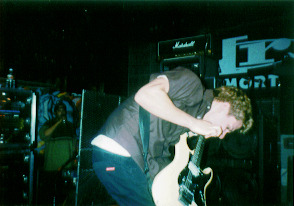





Far playing at their CD release show at the Revolver Club in San Diego taken by Eric Sellers, posted by Far69
#far band#far#jonah matranga#shaun lopez#chris robyn#john gutenberger#90s#cant find which release this was for so who knows#might be tin cans?#according to my tomes when w&s released they played in sac#might look deeper into the '96 site to see if it was mentioned
2 notes
·
View notes
Text
The Elements Of Drawing: In Three Letters To Beginners - John Ruskin
This book is public domain in the USA, so should be free to use with almost no restrictions. Check the laws in your own country. There are various download options available including Kindle or you may choose to read it in the browser.
You may also read it on the Internet Archive. However please be cautious when downloading or sharing other books and first check the status of those works, as the Internet Archive has had issues with copyright infringements before.
#art resources#art tutorials#visual art tips#the elements of drawing#john ruskin#traditional art#free art books#public domain#creative commons#project gutenberg
17 notes
·
View notes
Text


John, alas, came home with the flu and doesn't get to enjoy his guest or his son! I locked him into his bedroom until he gets better - I'm not letting the creeping crud get taken back to either the Ottomas or the Hart households! I locked his door and the door to the hall from the bathroom. He's got plenty to read, he shouldn't even be bored. Just lonesome.
7 notes
·
View notes
Text
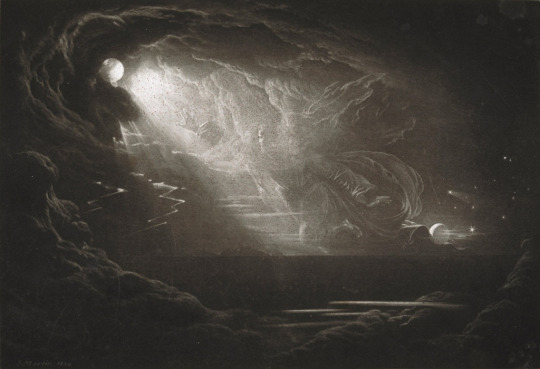
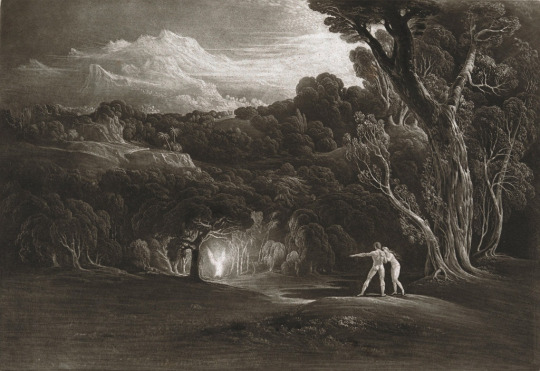
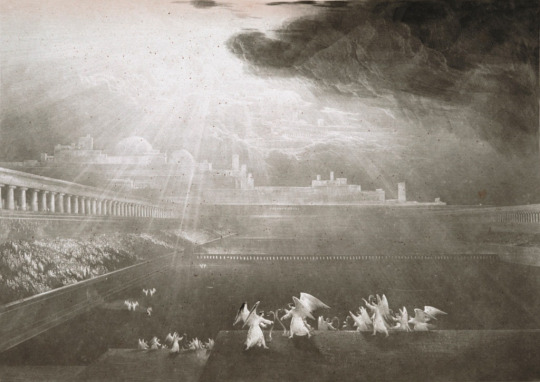
from John Martin's illustrations of John Milton's Paradise Lost
#the paradise lost link is to project gutenberg ebook version of paradise lost (web embedded)#these illustrations are just magnificient#john milton#paradise lost#john martin#dianna.moon#illustrations#art
16 notes
·
View notes
Text




I’m begging all of you to read Robin Hood by J. Walker McSpadden on project gutenberg, there are SO MANY gems like this
#robin hood#j walker mcspadden#the adventures of robin hood#‘you reviler of good hasty pudding’ has become part of my lexicon#literature#english literature#english folklore#little john#friar tuck#project gutenberg#reading
13 notes
·
View notes
Link

Author
Hume, David, 1711-1776
Title The History of England in Three Volumes, Vol. I., Part A.
From the Britons of Early Times to King John
Language English
LoC Class
DA: History: General and Eastern Hemisphere: Great Britain, Ireland, Central Europe
Subject
Great Britain -- History
CategoryText
EBook-No.19211
Release Date Sep 8, 2006
Copyright Status Public domain in the USA.
9 notes
·
View notes
Text
This was fun! I put in 15 samples of my fiction writing (including stuff that isn't on my AO3 account!) and the author I most write like is Lucy Maud Montgomery, followed by Willa Cather and Stephen Crane a short distance below. After them, there's a big drop down to John Muir, then a smaller drop to everyone else.
I'd like to try it again with my nonfiction writing. Let me know if you do this, and which authors you get!
#writing#writers on tumblr#writing tools#writing resources#text analysis#style analysis#project gutenberg#lucy maud montgomery#stephen crane#willa cather#john muir#this also led me down a bit of a rabbit hole regarding willa cather's life#she is a super interesting figure!
0 notes
Text


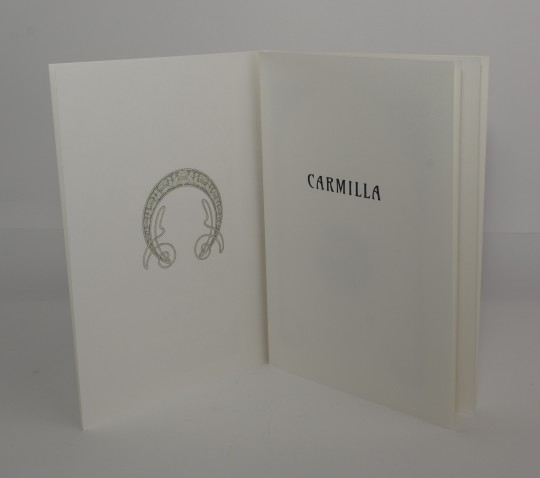

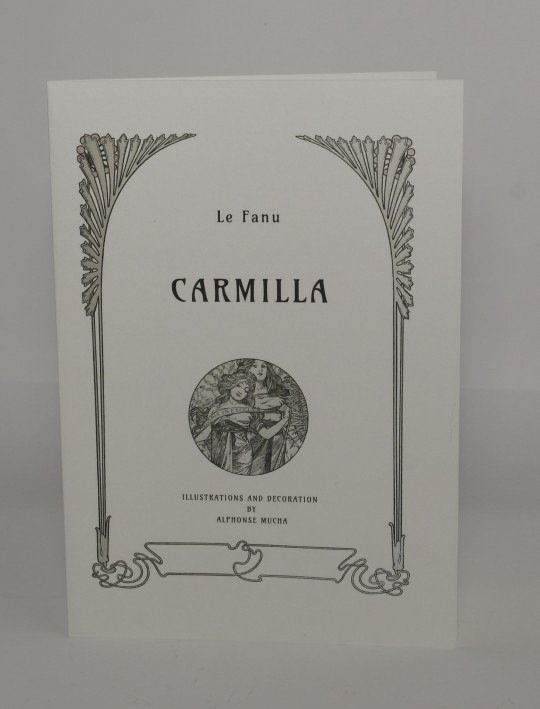

Carmilla by Joseph Sheridan Le Fanu & The Vampyr by John William Polidori
This time I'm sharing pictures of a typeset I made for fellow @renegadepublishing friends to bind at an in-person-workshop dimitris_bookbinding_corner (at least some of the fancy pictures).
Look at one of the finished binds created by @celestial-sphere-press
Sooo, about this typeset, what can I say? It was a joy and a pain to create this typeset to meet certain requirements in page count and size as well as getting to use wonderful book illustrations by Alphonse Mucha. Some typos were found, others, well now they stare me in the eye...
While the chapter start pages for Carmilla (on the left) were simply the original frames and illustrations with the text replaced by the text of Carmilla, I wanted The Vampyr (on the right) to look the similar, but yet different from the first story. There was no way around sticking to Mucha, because, well, nothing else went as well with is style than his style. After some experimenting with different works of Mucha I went with his moon and stars cycle in addition to the 1903 cover the 'Paris illustre' and the lithography for Flirt biscuits by the company Lefèvre Utile (today still known as LU)' from 1899 to tie them together.
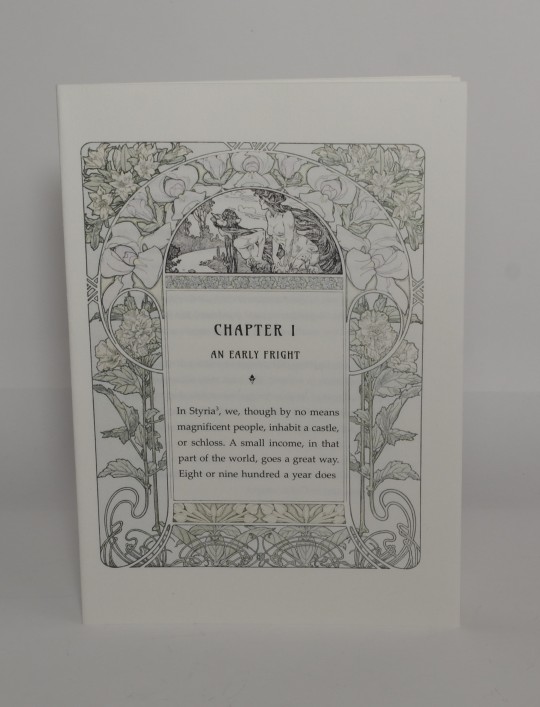
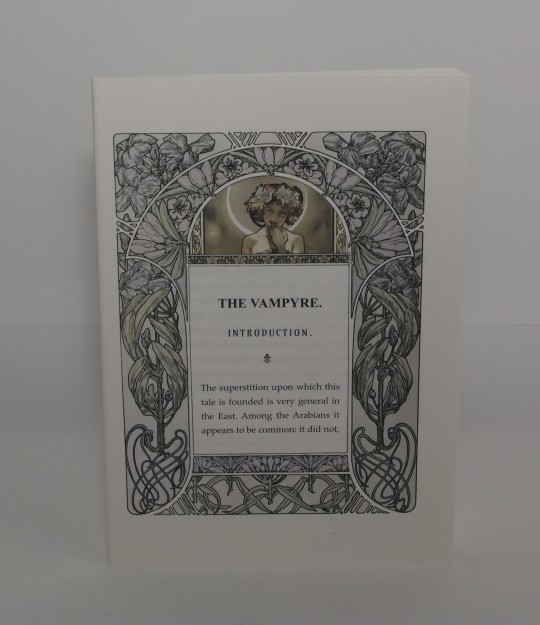
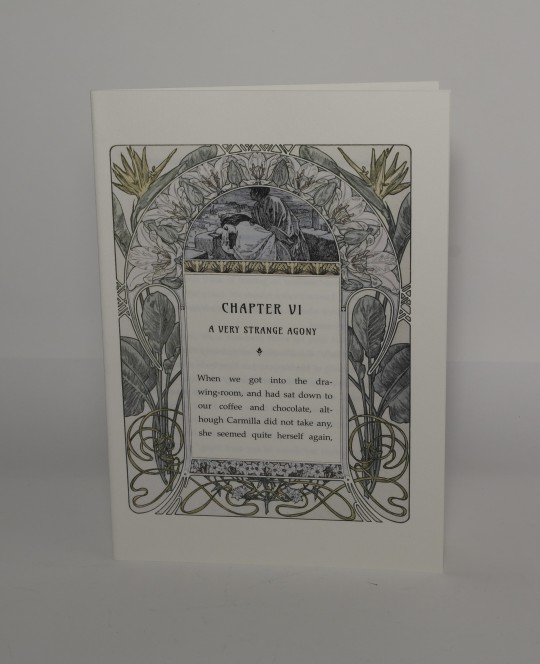




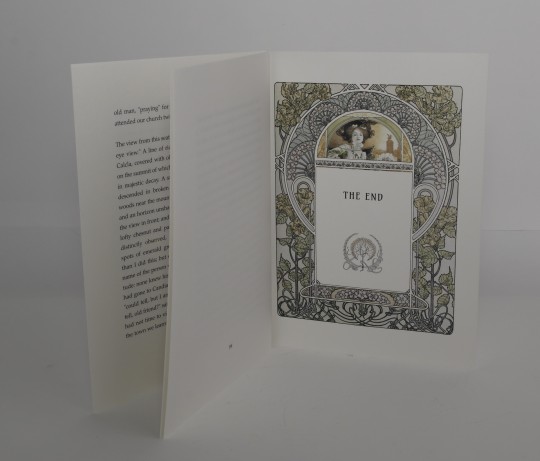
The Carmilla typeset is actually a merge with the main text sourced from Project Gutenberg and notes sourced from a version found at the University of Pennsylvania. (I also learned the word 'odylic' from these notes. Before I'd have considered it simply a typo XD)
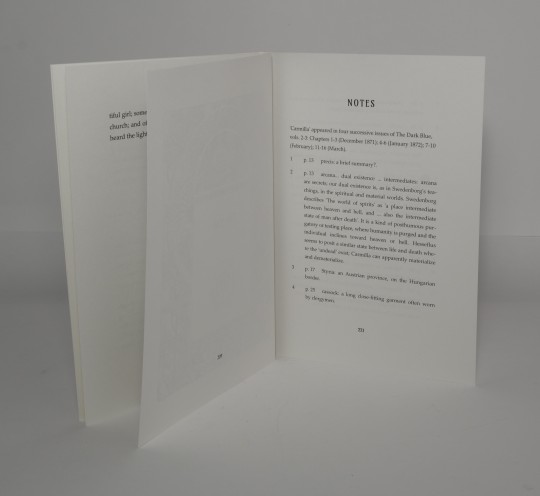
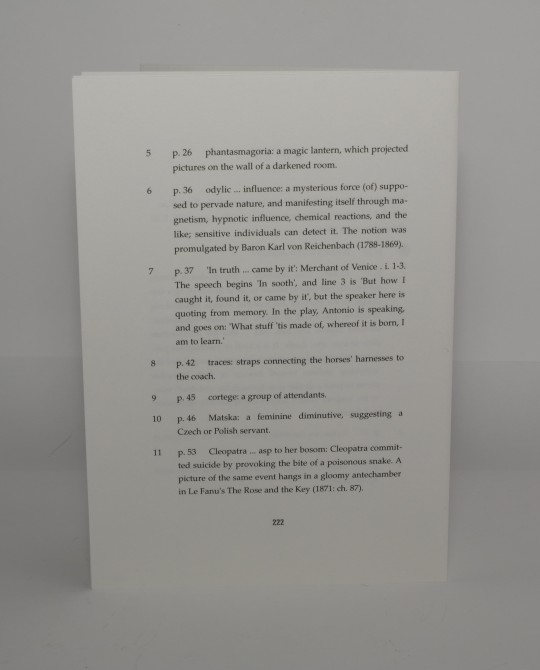
#bookbinding#alphonse mucha#carmilla#the vampyr#le fanu#polidori#my typeset#did I ever mention typesetting is my least favorite part of fanbinding? XD
86 notes
·
View notes
Text
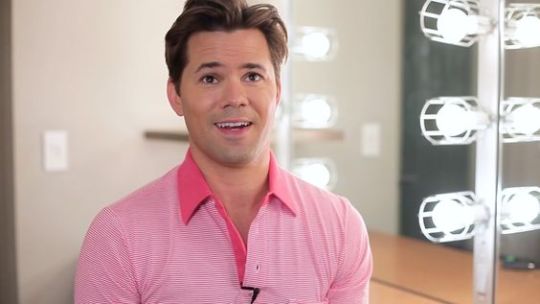



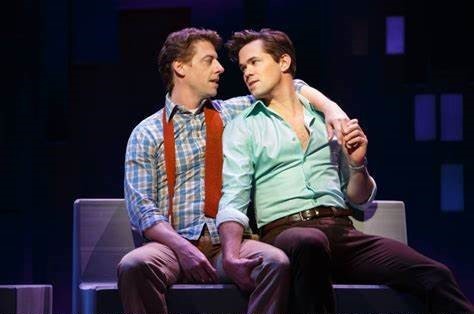



Andrew is the Man!
The multi-talented Andrew Rannell's iconic stage and film roles ...
as Elder Price, in the Tony award winning Broadway musical comedy, The Book of Mormon, with music, lyrics, and book by Trey Parker, Robert Lopez, and Matt Stone (2011)
as Hedwig, in John Cameron Mitchell and Stephen Trask's rock musical, Hedwig and the Angry Inch, on Broadway (2014)
as King George III, in Lin-Manuel Miranda's Tony Award and Pulitzer Prize winning musical masterpiece, Hamilton, on Broadway (2015)
as Whizzer, with Christian Borle as Marvin, in Falsettos, book by William Finn and James Lapine, and music and lyrics by Finn (2016)
as Larry, with Jim Parsons as Michael, in the Netflix film of Matt Crowley's play, The Boys in the Band (2020)
as Trent Oliver in the 2020 American musical comedy film, The Prom, directed by Ryan Murphy
As Doug Simon, with Josh Gad as Bud Davenport, in the hilarious Broadway musical, Gutenberg! The Musical! (2023)
#andrew rannells#the book of mormon#hedwig and the angry inch#hamilton#falsettos#the boys in the band#the prom#gutenberg! the musical!
122 notes
·
View notes
Note
13, 17, 22 📚
13: What were your least favorite books of the year?
My least-liked three books were... (edit: four. four books. I added a fourth :/ )
Lady Jayne Disappears by Joanna Davidson Politano was a Christian mystery romance that I read this year on a whim. It's definitely the thing I ranked the lowest on my Goodreads this year. Egregious historical anachronisms abounded! !he heroine was praised for having a cruel, eye-for-an-eye attitude towards her relatives! The characters' behavior didn't make sense! And the mystery itself didn't end in a satisfying way.
The Crystal Cave by Mary Stewart was admittedly an interesting read, and I'll probably seek out other books in the series, but there were parts of it that bothered me. For one, a pretty important twist in the book relies on the characters forgetting they're living in a multilingual society, specifically a society where people might use Latinized forms of their names. This irritated me because otherwise Stewart has a pretty good grasp of how multilingual the Medieval world actually was. Aside from that, there was your average bizarrely anachronistic portrayal of Christianity that is typical of any Arthurian retelling written in the late 20th century. (She gets points, though, for not doing the same boring old Paganism Good, Christianity Bad cold take that a lot of her contemporaries did.)
I feel bad saying I didn't especially like The Ruthless Elimination of Hurry by John Mark Comer, because I feel like everyone and their cat liked this book, but I didn't. It wasn't bad! I see why it spoke to a lot of people! And I'd be lying if I said I didn't learn from it! But I felt as though Comer's language risked turning the Christian life into a hip new self-help regimen. Like that was Jesus' whole point. I had to set the book down for a while when he swapped out the idea of "simplicity" with "minimalism".
Also, I didn't finish A Generous Orthodoxy by Brian McLaren, but I had to stop reading it because I found the man's tone insufferable.
17: Did any books surprise you with how good they were?
I learned about Take Me for a Ride by Mark Laxer from Atrocity Guide's video on Frederick Lenz, and I read it off of my phone while on vacation this summer (since it was free on Project Gutenberg).
I was not expecting this book to wow me in the way that it did. It's a memoir about a young man healing from his time in a cult and an analysis of why people join cults in the first place. It was fascinating, but also genuinely well-written. Definitely recommend checking it out.
22: What’s the longest book you read?
Going by page count for these, it was Fellowship of the Ring, which I re-read this year!
For stuff I read for the first time, it was The Electric Kool-Aid Acid Test by Tom Wolfe, which I read in part because Mark Laxer references it several times in Take Me for a Ride.
#don't know how much i'd recommend the electric kool-aid acid test to people#it's interesting if you want to learn more about the history of the hippie movement but be warned that it is not the Clean Version#asks#rillabrooke
8 notes
·
View notes
Note
I kinda need a space to ask this and my own blog might not be reachable enough, so I hope I can ask here, thank you!
I have this idea to write journal entries of my character(s) because I liked the format. Though this seemed like a better idea as a plot device to support the story, I've only been able to think of the author of the journals going insane. I wonder if anyone has ideas about alternative routes how the journals could've ended?
If anyone else wants to contribute to answering this question, have at it in the comments/reblogs!
Otherwise, here's my answer:
There's a list of stories on Wikipedia that are similar to what you're describing ("List of fictional diaries"), which can provide examples of different narratives that have other endings.
Some epistolary novels (novels written as a series of letters between the fictional characters) contain diary/journal entries, so you can look to some of those for inspiration as well. There's 100 public domain epistolary novels on Project Gutenberg (including Dracula), if you'd like to read one or a few of those to see how other writers have handled it in the past.
Dracula contains journal entries of various characters, letters between them, and even newspaper articles that cover additional incidents. It ends once Dracula is defeated.
What Manner of Man (written by Tumblr user St. John Sterling) consists of letters and journal entries from one main character's perspective. It ends once a mystery is uncovered, a significant amount of character growth happens, and a new period of that character's life begins. (This is on Substack, later to be published in its full form)
I'm going to guess that "going insane" is in the Lovecraftian sense, so the narrative would end like Herbert West—Reanimator (or several other of his stories). The narrator is forever haunted by whatever happened and knows too much about something they shouldn't. But there is also a defined end of a period of time. In this case, (spoilers for a 102-year-old serialized work) Herbert West is killed by his own unnatural creations. But that's the last straw for the unnamed narrator, who had been wary of all this to begin with.
I'd say that finding alternate routes shouldn't be as hard once you know what you want out of your story.
What genre are you writing in?
Are you sticking to that genre's conventions?
What are you trying to accomplish with this particular framing device? (Besides just enjoying the format.)
How does the story benefit from being told in this perspective?
What sort of conclusion do you want?
Is there a particular emotion you want to evoke in the readers from this conclusion?
I'm sorry if this looks more like homework than a post that can help you figure out other ways to end your story. I personally ask myself (sometimes ridiculous amount of) questions while writing in order to better accomplish what I want to accomplish and also try to make sure the conclusions are logical, so that's where I'm coming from. I'm also of the belief that research helps with writing, even if it's reading/amassing reference materials for a particular kind of fiction.
9 notes
·
View notes
Text
the unofficial ultimate bungo stray dogs reading list
this is mainly for myself bc i rly do want to read most if not all of these and i'm sure it's already been done by someone somewhere. but, i thought why not post it lmao; most if not all of these can be found on anna's archive, z-library, or project gutenberg! (also, consider buying from your local bookstore!) for those that are a bit harder to find, i've included links, though some are from j-stor and would require login to access.
detective agency:
osamu dazai:
no longer human (novel)
the setting sun (novel)
nakajima atsushi:
the moon over the mountain: stories (short story collection)
light, wind and dreams (short story)
fukuzawa yukichi:
an encouragement of learning (17 volume collections of writings)
all the countries of the world, for children written in verse (textbook)
yosano akiko:
kimi shinitamou koto nakare (poem)
midaregami (poetry collection)
edogawa ranpo:
the boy detectives club (book series)
japanese tales of mystery and imagination (short story collection)
the early cases of akechi kogoro (novel)
kunikida doppo:
river mist and other stories (short story collection)
izumi kyouka:
demon lake (play)
spirits of another sort: the plays of izumi kyoka (play collection)
tanizaki junichirou:
the makioka sisters (novel)
the red roof and other stories (short story collection)
miyazawa kenji:
ame ni mo makezu; be not defeated by the rain (poem)
night on the galactic railroad (novel)
strong in the rain (poetry collection)
port mafia:
mori ougai:
vita sexualis (novel)
the dancing girl (novel)
nakahara chuuya:
poems of nakahara chuya (poetry collection)
akutagawa ryuunosuke:
rashoumon (short story)
the spider's thread (short story)
rashoumon and other stories (short story collection)
ozaki kyouyou:
the gold demon (novel)
higuchi ichiyou:
in the shade of spring leaves (biography and short stories)
hirotsu ryuurou:
falling camellia (novel)
tachihara michizou:
in mourning for the summer (poem)
midwinter momento (poem)
from the country of eight islands: an anthology of japanese poetry (poetry collection)
kajii motojirou:
lemon (short story)
yumeno kyuusaku:
dogra magra (novel)
oda sakunosuke:
flawless/immaculate (short story)
sakaguchi ango:
darakuron (essay)
the guild:
f. scott fitzgerald:
the great gatsby (novel)
the beautiful and the damned (novel)
edgar allen poe:
the raven (poem)
the black cat (short story)
the murders in the rue morgue (short story)
herman melville:
moby dick (novel)
h.p. lovecraft:
the call of cthulhu (short story)
the shadow out of time (novella)
john steinbeck:
the grapes of wrath (novel)
of mice and men (novel)
lucy maud montgomery:
anne of green gables (novel)
the blue castle (novel)
chronicles of avonlea (short story collection)
louisa may alcott:
little women (novel)
the brownie and the princess (short story collection)
margaret mitchell:
gone with the wind (novel)
mark twain:
the adventures of tom sawyer (novel)
adventures of huckleberry finn (novel)
nathaniel hawthorn:
the scarlet letter (novel)
rats in the house of the dead:
fyodor dostoevsky:
crime and punishment (novel)
the brothers karamozov (novel)
notes from the underground (short story collection)
alexander pushkin:
eugene onegin (novel)
a feast in time of plague (play)
ivan goncharov:
the precipice (novel)
oguri mushitarou:
the perfect crime (novel)
decay of the angel:
fukuchi ouchi:
the mirror lion, a spring diversion (kabuki play)
bram stoker:
dracula (novel)
dracula's guest and other weird stories (short story collection)
nikolai gogol:
the overcoat (short story)
dead souls (novel)
hunting dogs: (i must caveat here that the hunting dogs are named after much more comparatively obscure jpn writers/playwrights so i was unable to find a lot of the specific pieces actually mentioned; but i still wanted to include them on the list because well -- it wouldn't be a bsd list without them)
okura teruko:
gasp of the soul (short story; i wasn't able to find an english translation)
devil woman (short story)
jouno saigiku:
priceless tears (kabuki play; no translation but at least we have a summary)
suehiro tetchou:
setchuubai/a political novel: plum blossoms in snow (novel)
division for unusual powers:
taneda santouka:
the santoka: versions by scott watson (poetry collection)
tsujimura mizuki:
lonely castle in the mirror (novel)
yesterday's shadow tag (short story collection; i was unable to find a translation)
order of the clock tower:
agatha christie:
and then there were none (novel)
murder on the orient express (novel)
she is the best selling fiction writer of all time there's too much to list here
mimic:
andre gide:
strait is the gate (novel)
trascendents:
arthur rimbaud:
illuminations (poetry collection)
the drunken boat (poem)
a season in hell (prose poem)
johann von goethe:
faust
the sorrows of young werther
paul verlaine:
clair de lune (poem, yes it did inspire the debussy piece, yes)
poems under saturn (poetry collection)
victor hugo:
the hunchback of notre-dame (novel)
les miserables (novel)
william shakespeare:
romeo and juliet (play)
a midsummer nights' dream (play)
sonnets (poetry collection)
the seven traitors:
jules verne:
around the world in 80 days (novel)
journey to the center of the earth (novel)
twenty thousand leagues under the seas (novel)
other:
natsume souseki:
i am a cat (novel)
kokoro (novel)
botchan (novel)
h.g. wells:
the time machine (novella)
the invisible man (novel)
the war of the worlds (novel)
shibusawa tatsuhiko:
the travels of prince takaoka (novel; unable to find translation)
dr. mary wollstonecraft godwin shelley
frankenstein (novel)
#bungo stray dogs#bsd#literature#dark academia#reading list#academia#i'm sure there's people i've missed but i did my best LOL#this also really throws into a stark contrast how relatively un-worldly american literary curriculums really are#obviously; it makes vague sense to focus american literary schooling on the western 'canon' bc so much of the english language#is influenced by it and the 'culture' is more touched by it but HOLY SHIT does it just... astound me#how uneducated i am on even east asian literature (from wheremst i technically hail!!!)#i know like.... maybe 3?? 4??? chinese writers off cuff???#like the only reason i even know anything about jpn literature is i got my minor in jpn so i read some stuff but WOWWWWW there's a wORLD.#the fact that i knew not a SINGLE work by most of these jpn writers but as soon as we got to the guild members#i didn't even have to fucking google/wiki -- i just KNEW off the top of my head#kinda fucked up tbh;;;;#anyway this list is massive but i think at least dipping my foot into some of the poems/short stories will be fun
70 notes
·
View notes
Text

“The mind is its own place, and in itself can make a heaven of hell, a hell of heaven...”
Literally the entire text of Paradise Lost bc Project Gutenberg rules
Reblog for a larger sample size!
#we googled the quotation for this one friends#i am one person and i simply do not have time to read all of paradise lost before i go to bed tonight#epic poetry#classic literature#paradise lost#john milton#closed polls#polls#poetry#poems#poetry polls#poets and writing#tumblr poetry#have you read this
22 notes
·
View notes
Text





After the sorority leaves and Jane goes to bed, it's just Jack and John, who's slated to stay home tomorrow, using his last vacation day. Then it'll be the weekend, and then it'll be time to consider the nanny problem.
5 notes
·
View notes
Text
Ep 279: The Third Man Syndrome Part 1
"Who is the third who walks always beside you? When I count, there are only you and I together But when I look ahead up the white road There is always another one walking beside you" -- The Waste Land by T. S. ELIOT
Description:
A strange occurrence often happens to people engaged in an adventurous activity or who fall victim to an unfortunate circumstance. They find themselves with a companion whose presence would typically be impossible. Usually, the person is at a critical moment in a life-or-death situation in an extreme and unusual environment. When they are weakened and dying from exposure, suffering privation of sustenance, lost and alone, when they are about to lose all hope and accept their demise, that’s when this otherworldly friend suddenly appears to render aid and encouragement, giving them a superhuman will or strength to survive. Psychologists label this a “sensed presence experience” but are at a loss for a simple explanation. These presences may be seen, heard, and sometimes even touched. They appear in dire situations to people from all walks of life. They may materialize as a known friend, a deceased relative, a religious figure, or an indeterminate benefactor. Still, whatever their form, there is no doubt to the one in danger that this being is real and there with them. Although this sensed presence appears most often to mountain climbers, sailors, divers, and polar explorers, it can also happen to astronauts, prisoners of war, and disaster survivors. One of the most intriguing aspects of the sensed presence experience is that the ethereal saviors aren’t just there to provide comforting words; they actually help with knowledgable advice or guidance or can even seemingly take over the actions of the afflicted – whatever is necessary to increase the odds of survival. Join us as we explore a phenomenon more common than you might think, a syndrome also known as the “Third Man.”
Reference Links:
“The Sensed Presence as a Coping Resource in Extreme Environments”
by Peter Suedfeld & John Geiger. From Miracles: God, Science, and Psychology in the Paranormal on Omnilogos.com
“The Sensed Presence as A Coping Resource in Extreme Environments” on the Julian Jaynes Society website
“How does our understanding of the sensed presence phenomenon in extreme settings change the way we talk about so-called mental ‘illnesses’ in daily life?” by Blaise Cottingham on Medium.com
Angels of Mons on Wikipedia
Vincent Lam
“Extreme environment” on Wikipedia
King Nebuchadnezzar from Daniel 3:24-5 on BibleGateway.com
The Savage Curtain episode of the original Star Trek series
“Charles Lindbergh and the Third Man Factor” on Theresa's Haunted History of the Tri-State blog
Poet, memoirist, and songwriter Mary Karr
“The Liars’ Club” by Mary Karr
Kanchenjunga, the world’s third highest mountain, on Britannica.com
“Wilson,” the volleyball from the motion picture Castaway
“Ernest Shackleton's Crew of the Endurance – Imperial Trans Antarctica Expedition 1914 -17” on CoolAntarctica.com
Husvik, the former whaling station on the north-central coast of South Georgia Island, Antarctica
Elephant Island, Antarctica
“Excerpt: The Voyage of the James Caird by Ernest Shackleton” from the American Museum of Natural History website
Alfred Lansing
Caedmon, widely considered to be the world’s first audiobook and launch of the spoken word industry
“The Waste Land” by T. S. Eliot on Project Gutenberg
Stromness, South Georgia
Sir Ernest Shackleton and T S Eliot’s ‘third man’ from the Royal Scottish Geographical Society
The Waste Land Part I – The Burial of the Dead from the Poetry Archive
The Waste Land from The Poetry Foundation
“T. S. ELIOT SAW ALL THIS COMING” from The Atlantic
The Waste Land on Wikipedia
Jane S. P. Mocellin and Peter Suedfeld’s research on behavior in extreme environments from ResearchGate.net
“Shackleton's whisky returned to Antarctic hut” on CBC.ca
“Spirits of the South Pole” from The New York Times Magazine
“Wild Survival Story About 1983 Rockies Alpine Avalanche” – the story of Jim Sevigny and Richard Whitmire
Distance Line for cave diving
“UK scientist has her lab in underwater caves” – Stephanie Schwabe article from the Lexington Herald-Leader
Kendal Mint Cake on Wikipedia
Romney’s Kendal Mint Cake on Amazon
Reinhold Messner
“The Unauthorized Biography of Reinhold Messner” music album by the band Ben Folds Five
Related Books:
Suggested Listening:
Find us on YouTube!
Click this text to find all Astonishing Legends episodes and more on our Youtube Channel https://www.youtube.com/c/Astonishinglegends
Join us on Patreon!
Click HERE or go to patreon.com/astonishinglegends to become one of our Patreon members and receive exclusive offerings, like our bonus Astonishing Junk Drawer episodes (posted every weekend the main show is dark) commercial-free episodes, and more!
SPECIAL OFFERS FROM OUR SPECIAL SPONSORS:
FIND OTHER GREAT DEALS FROM OUR SHOW’S SPONSORS BY CLICKING HERE!
CREDITS:
Episode 279: The Third Man Syndrome Part 1. Produced by Scott Philbrook & Forrest Burgess. Audio Editing by Sarah Vorhees Wendel of VW Sound. Music and Sound Design by Allen Carrescia. Tess Pfeifle, Producer and Lead Researcher. Ed Voccola, Technical Producer. Research Support from The Astonishing Research Corps, or "A.R.C." for short. Copyright 2024 Astonishing Legends Productions, LLC. All Rights Reserved.
#2024#279#Third Man Syndrome#Third Man Factor#Third Man Phenomenon#sensed presence experience#extreme and unusual environments#John Geiger#Peter Suedfeld#Ernest Shackleton#South Pole#Reinhold Messner#guardian angel#Spirit Guides#higher self#astral self#bicameral mind#Lindbergh#Antarctica#Mount Everest#cave diving
15 notes
·
View notes
Text
A Dickens December will be returning for 2023, with daily emails of A Christmas Carol from December 1st to December 26th!
Average length of emails is about 2 pages per day.
This year the emails will also contain the original (and public domain) illustrations by John Leech, thanks to Project Gutenberg.
23 notes
·
View notes